lesson in a whisper
After watching Whisper of the Heart recently, I wanted to find an excuse to write about it.
Turns out this excuse I didn’t really need to search for. Since its viewing, one particular scene cannot leave my mind.
It is a scene that is quite minor in the story, yet surprisingly left a big mark on my mind.
Days after seeing it for the first time, it’s oddly the moment that I remember the most from the movie.
I want to take time to relive that scene and unpack its impact, and what it left behind.
This piece will be quite descriptive, I’m aware, but short of watching the movie, I have to go through this.
It also lets me take the time to bathe in its magic before hammering home the real takeaway.
The scene
We’re about three-quarters of the way through the movie, and our hero, Shizuku, deeply wants to write a story.
She spends her nights working on this piece of writing, building her plot and character, trying to make sense of all the ideas she has.
She puts everything aside for this effort, impacting her school grades as a consequence.
We’re starting the scene with her arguing with her sister Shiho. As an older sister does, she tries to reason with her that letting her grades fall through is not the way forward, however important this writing is.
Her father, Seiya, comes home from work. He takes his time to unpack and enter the home while overhearing the argument going on in the next room.
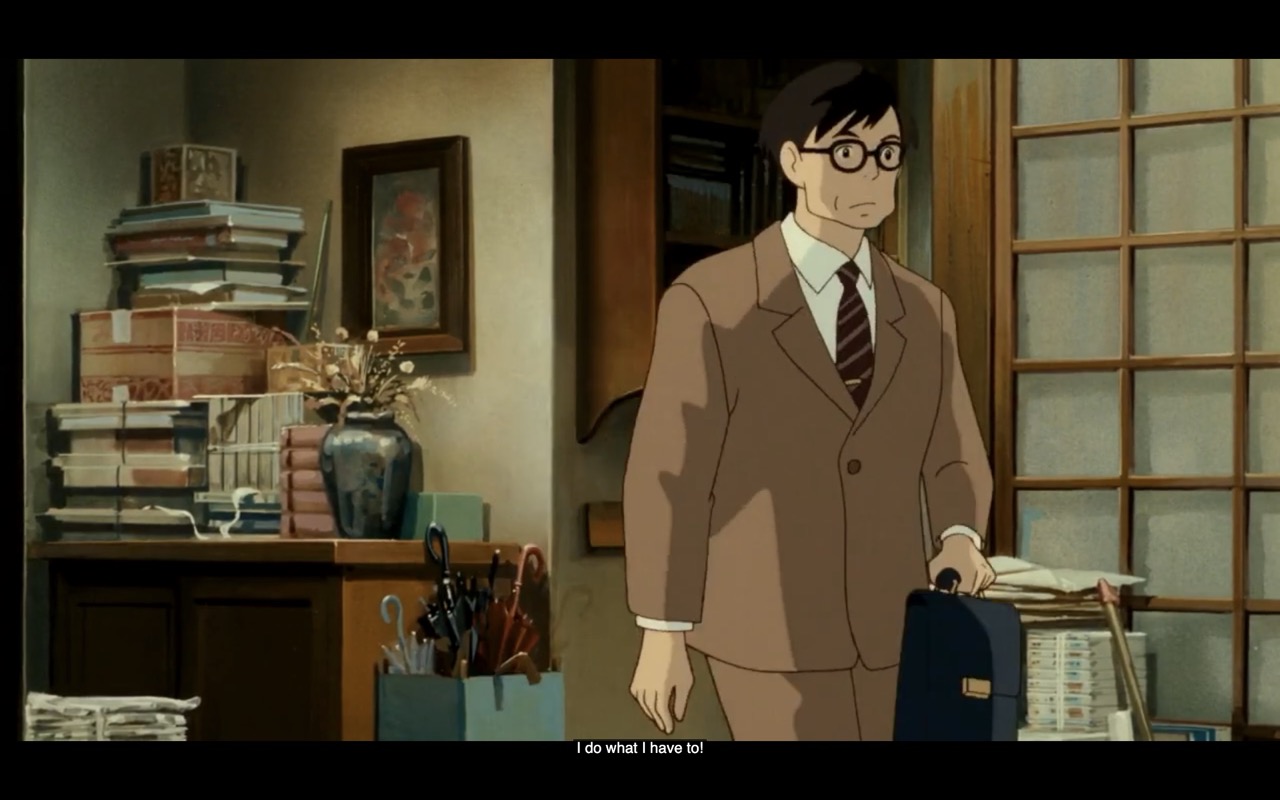
Shiho: “I do what I have to!”
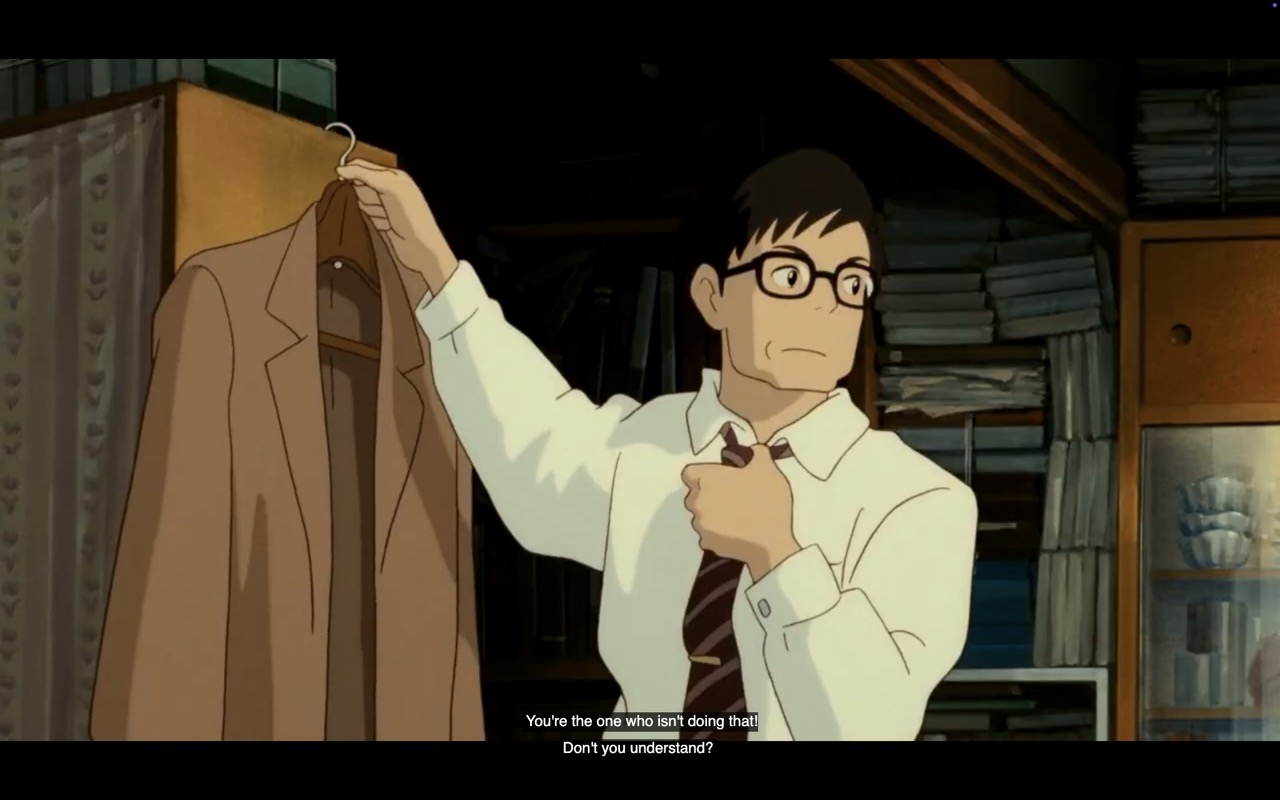
Shiho: “You’re the one who isn’t doing that! Don’t you understand?”
Seiya then decides to interrupt the two sisters and asks them, in a calm and soft voice, to come to the living room to discuss the matter at hand.
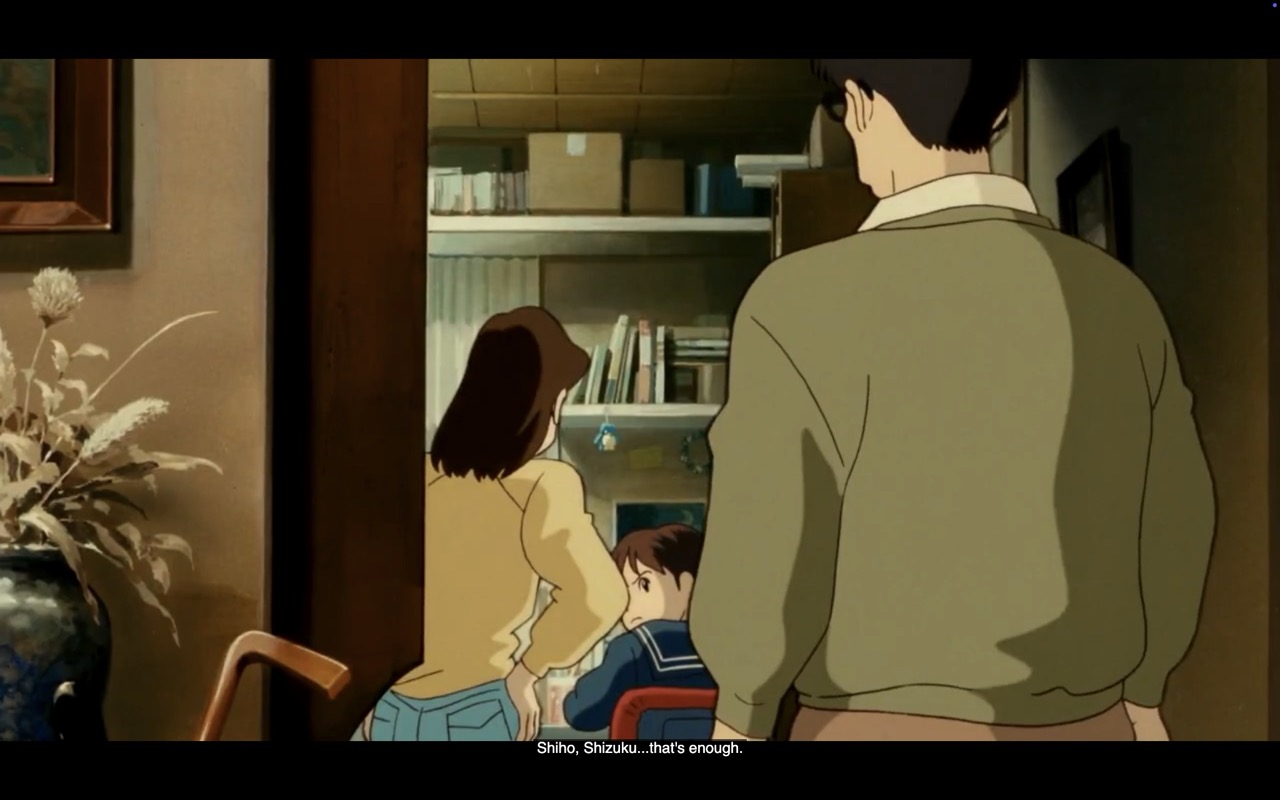
Seiya: “Shiho, Shizuku… That’s enough.”
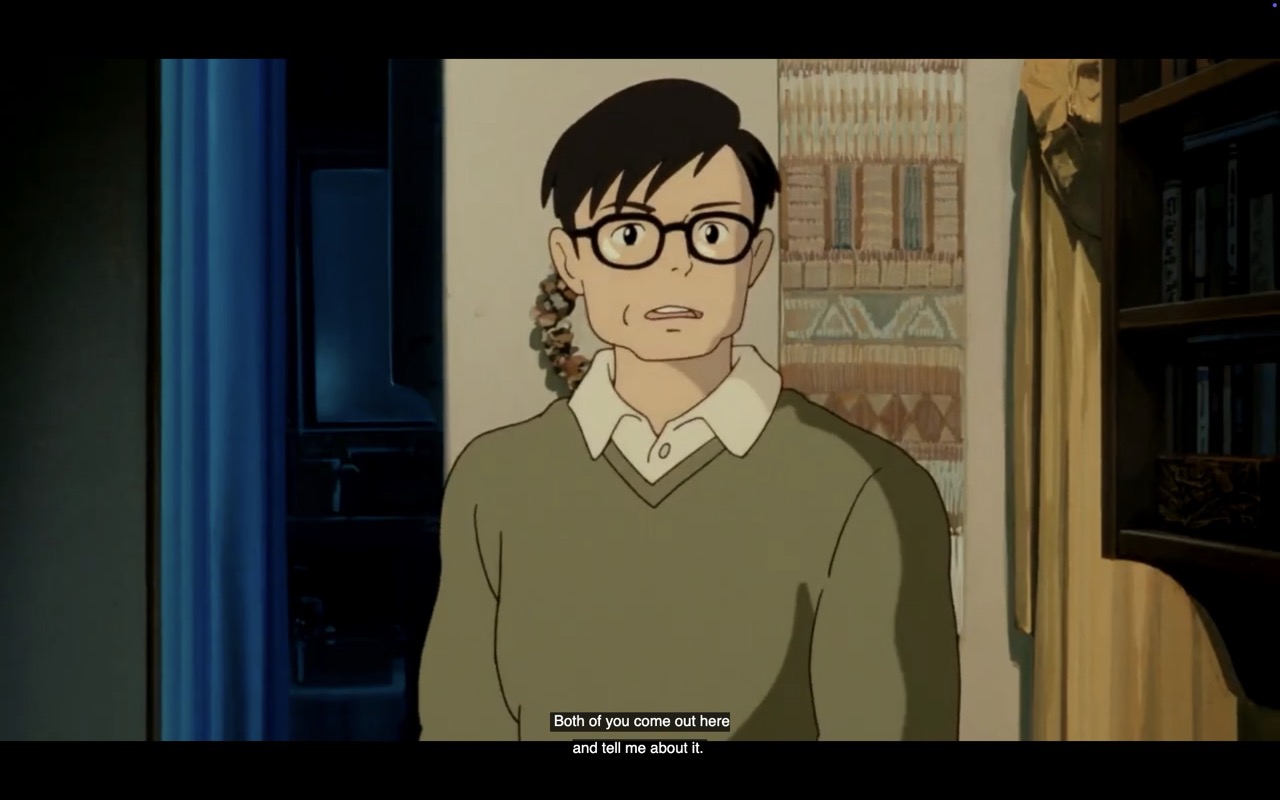
Seiya: “Both of you come out here and tell me about it.”
We cut to a few minutes later, after Shiho explains what is going on with Shizuku, and what is happening at school.
Seiya looks at Shizuku’s grades, and asks clarification on the situation.
The two sisters continue arguing at the table but are quickly cut short.
Shiho is asked to leave the table so that Shizuku can speak, without obstruction.
At the same time, their mother, Asako, comes home, and Seiya invites her to join them.
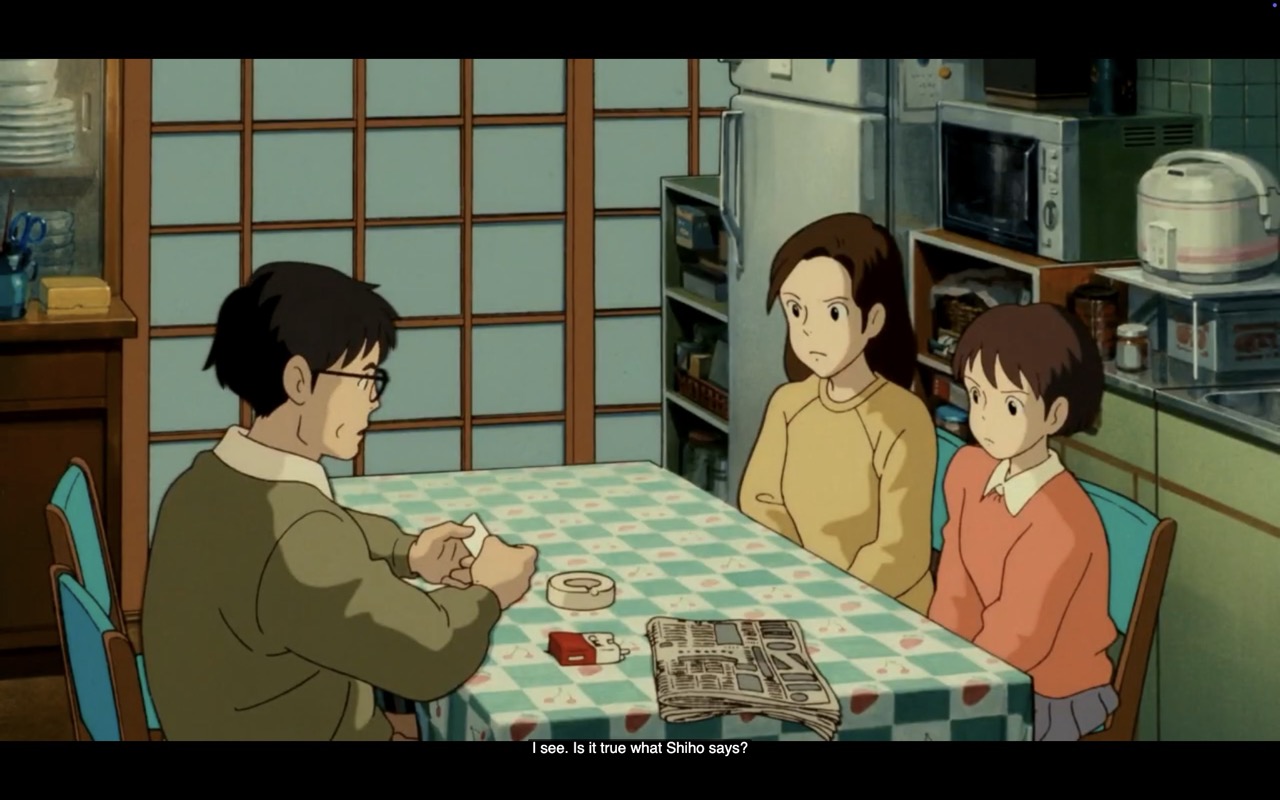
Seiya: “I see. Is it true what Shiho says?”
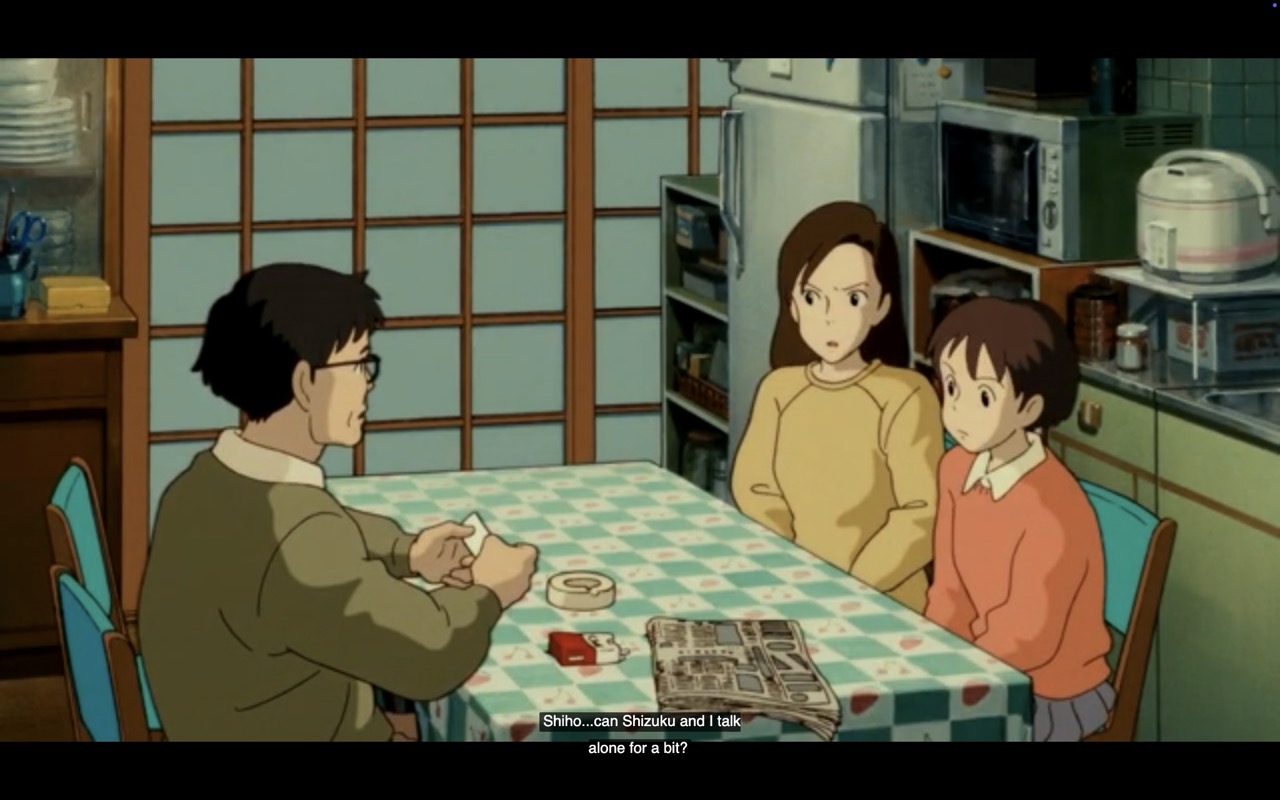
Seiya: “Shiho… can Shizuku and I talk alone for a bit?”
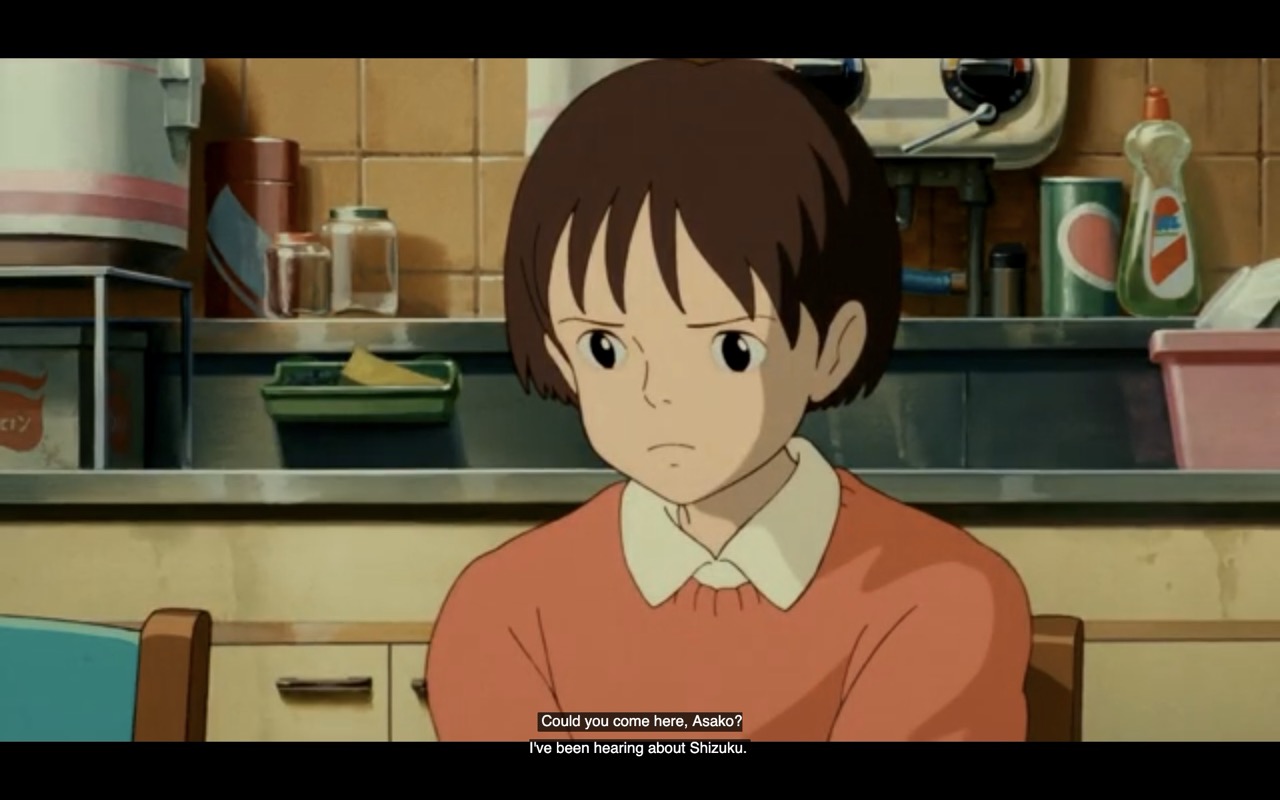
Seiya: “Could you come here, Asako? I’ve been hearing about Shizuku.”
The parents proceed to ask her a question about her passion project.
They hear and understand her reasoning behind leaving study aside and focusing on this story.
Shizuku doesn’t share much about what she’s doing. She’s not ready to talk about her ongoing work.
Her parents have to trust that what she’s working on is important, without knowing exactly what it is.
The only thing they know is that she sits at her desk and writes anytime she can, and that this is a test for her.
They try to understand more, to no avail.
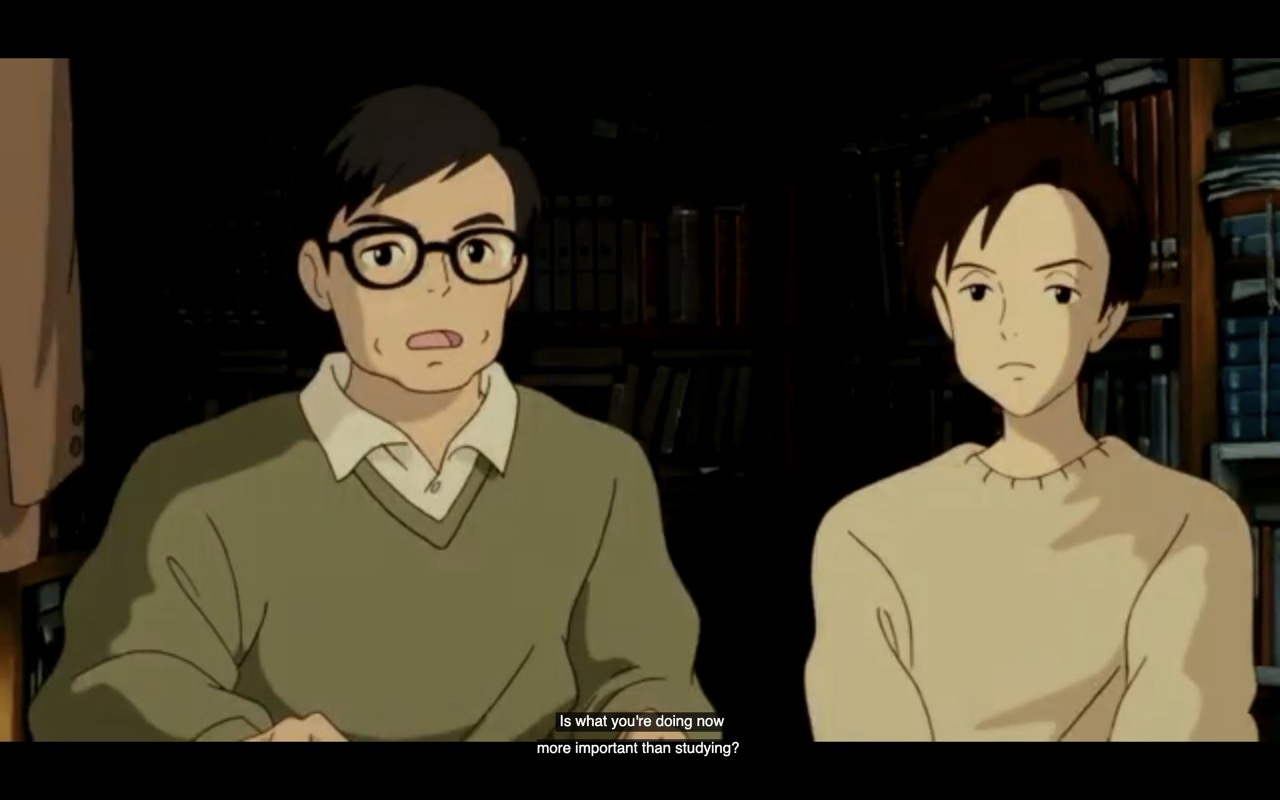
Seiya: “Is it what you’re doing now more important than studying?”
After understanding the whole context of the issue, and taking a pause, Seiya first compliments his daughter, explaining that her dedication to this work is admirable.
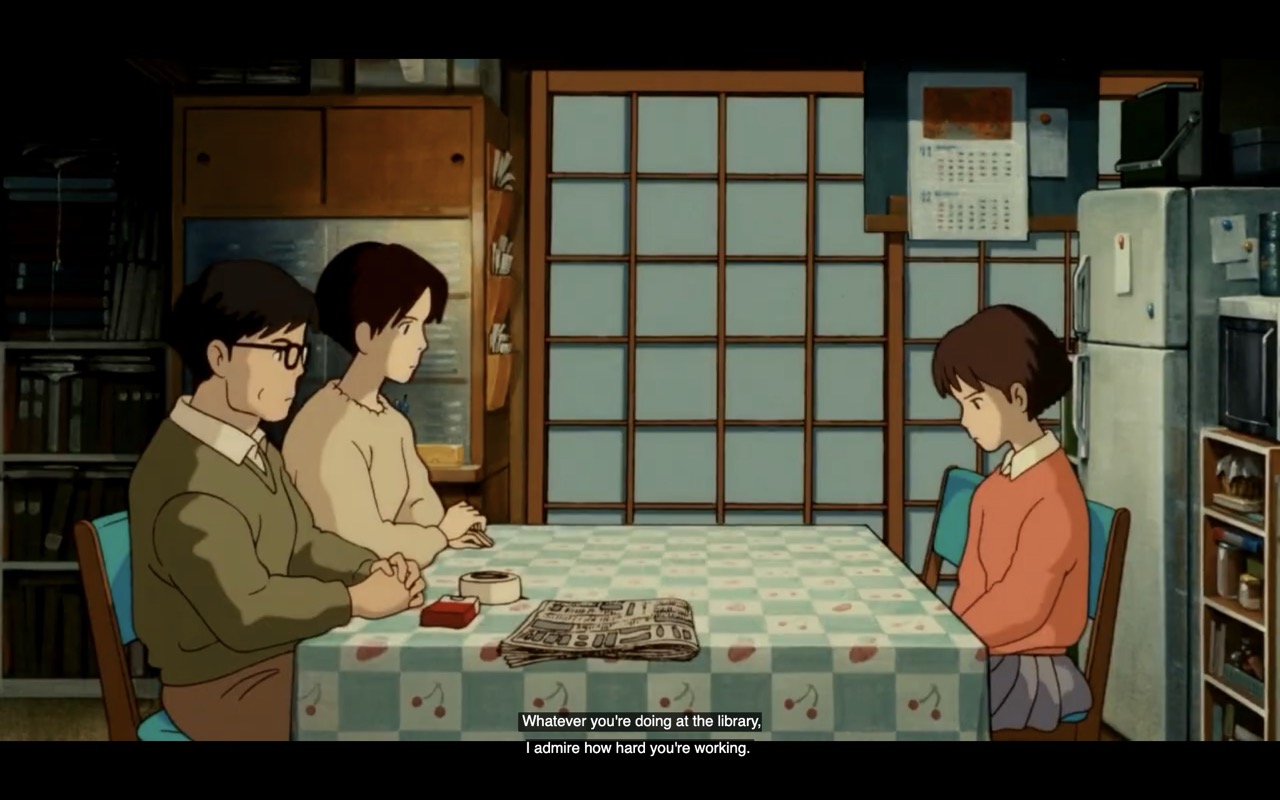
Seiya: “Whatever you’re doing at the library. I admire how hard you’re working.”
He then offers to Asako to let their daughter do what she wants.
He says that she will work for as long as she needs on her project, impacting her school along the way.
He states:
“Not everyone has to be the same”.
Asako shares that she also has an atypic path, and can understand her daughter’s position.
Seiya then confirms their decision: they will let her do what she wants.
Shizuku lifts her head up in disbelief, showing surprise at the compassion her parents are showing.
Seiya offers some words of advice for the path ahead before closing the conversation, letting Shizuku go back to her desk and write more.
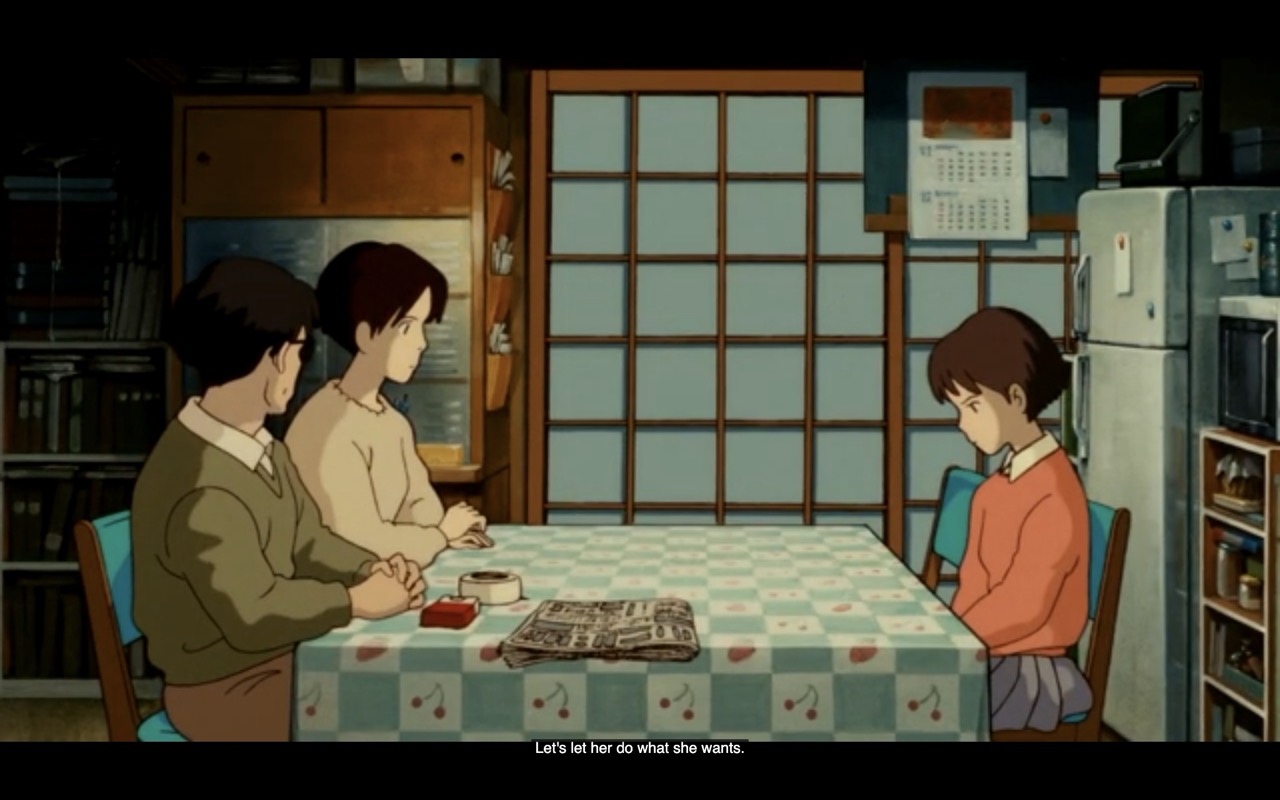
Seiya: “Let’s let her do what she wants.”
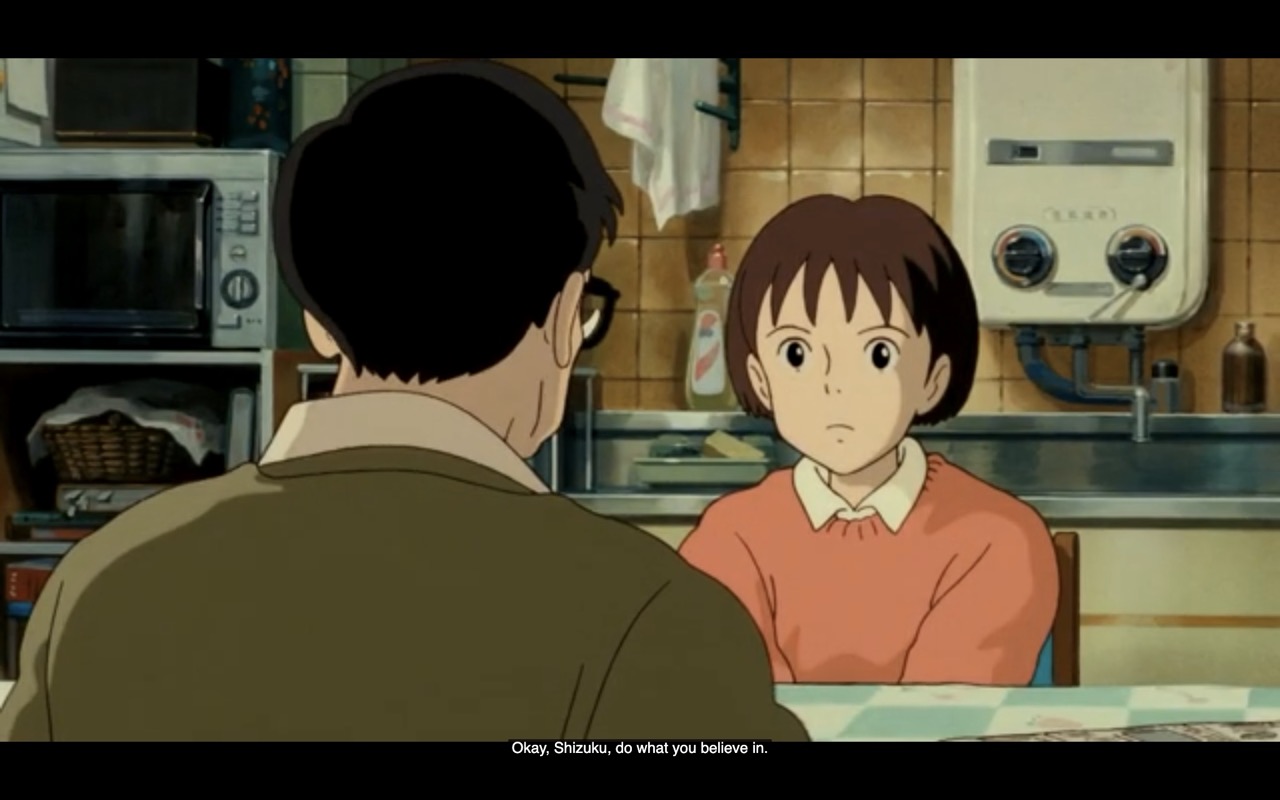
Seiya: “Okay, Shizuku, do what you believe in.”
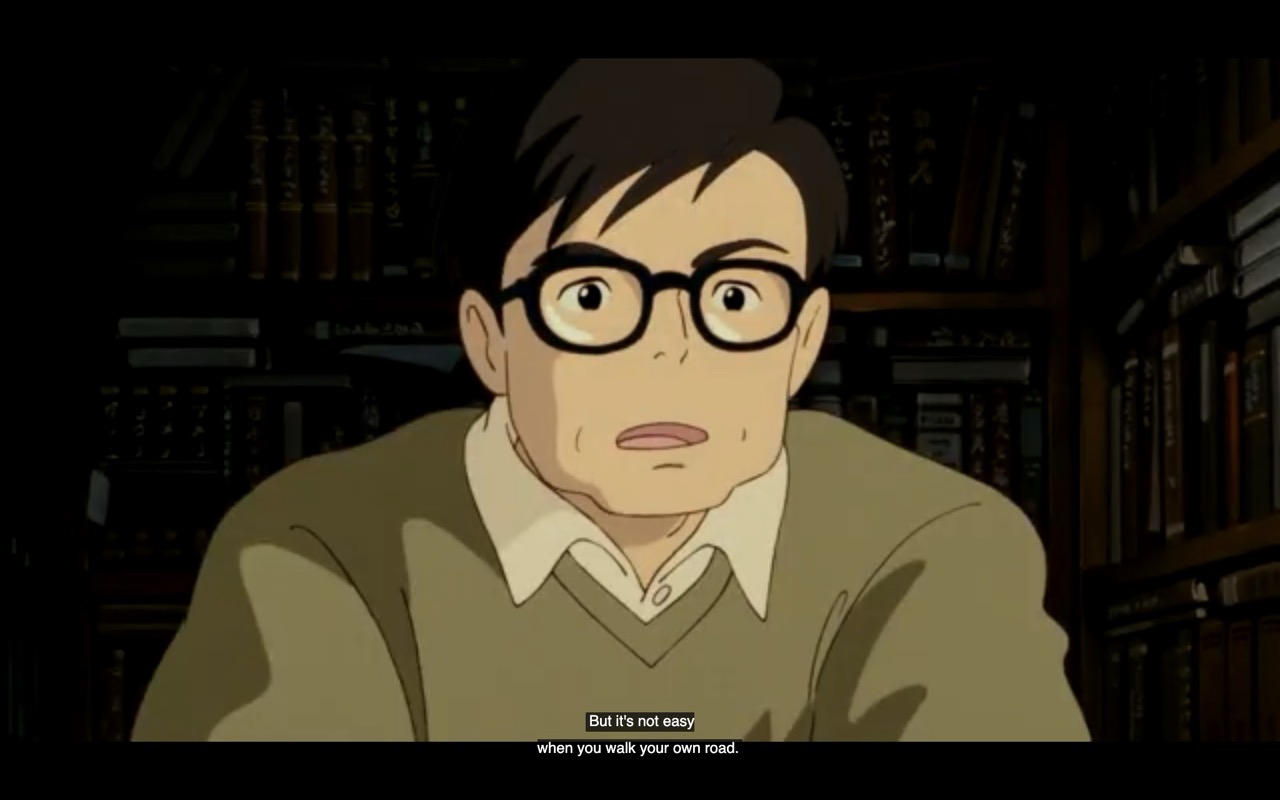
Seiya: “But it’s not easy when you walk your own road.”
Gut reaction
This scene is a small moment of the film, yet it brings great emotions in.
Shizuku is an artist trying to find herself and struggling to write this story that she deeply wants to write.
She is fighting through this artistic process only to encounter more obstacles at school.
She gets berated by teachers, and then some more when her sister scolds her to lose this obsession with her writing.
She is facing an enormous amount of stress for a teenager.
Seeing the father come home, I thought she would get piled on even more.
The twist of this being a compassionate discussion took me by surprise, leaving me simply happy.
Kindness
The dad’s first words in this scene are fantastic relief.
We don’t hear much of him up until now.
He speaks slowly and calmly, bringing both sisters out of the confrontation.
He seems interested and wants to do things correctly.
Seeing the tension between them, he chooses to only talk to Shizuku.
This move shows an amount of care I did not expect to see from a father.
Deciding to make space and ease the tension by hearing her speak alone is quite loving.
It found it inspiring to think of the little things one can do to make space for someone going through turmoil.
Trust & Boundaries
The other element of the conversation that left me speechless is the way the parents wanted to understand what Shizuku was going through.
They ask questions just like you would ask a dear friend.
They show great curiosity to understand her artistic process.
At one point of the parents’ poking, they receive no more insight, and their child closes up.
They quickly realize, and both instinctively don’t push forward to have more answers,
They respect her need for privacy and move on, acknowledging that they would love to know more, but this is not about them now.
Takeaway
This scene was a lot about realizing what great parenting could be.
How letting a child explore creativity is innevitable and so beneficial to their development.
Seeing the parents agree on this vision and seemingly finding it normal not to poke their heads in her work is fantastic.
The thing that stuck with me (and the whole point of this piece, if I’m being true) was Seiya’s portrayal.
Without restating everything above, I didn’t expect watching this movie would make me want to be a better dad (I’m not a dad, by the way).
It can help me still be a better person and handle conflict with greater care.
Sometimes I regret only remembering this scene, this movie was so much more.
Oh well, I guess it’s a good excuse for a rewatch, at least I am happy to only remember a newfound animated role model, for now.